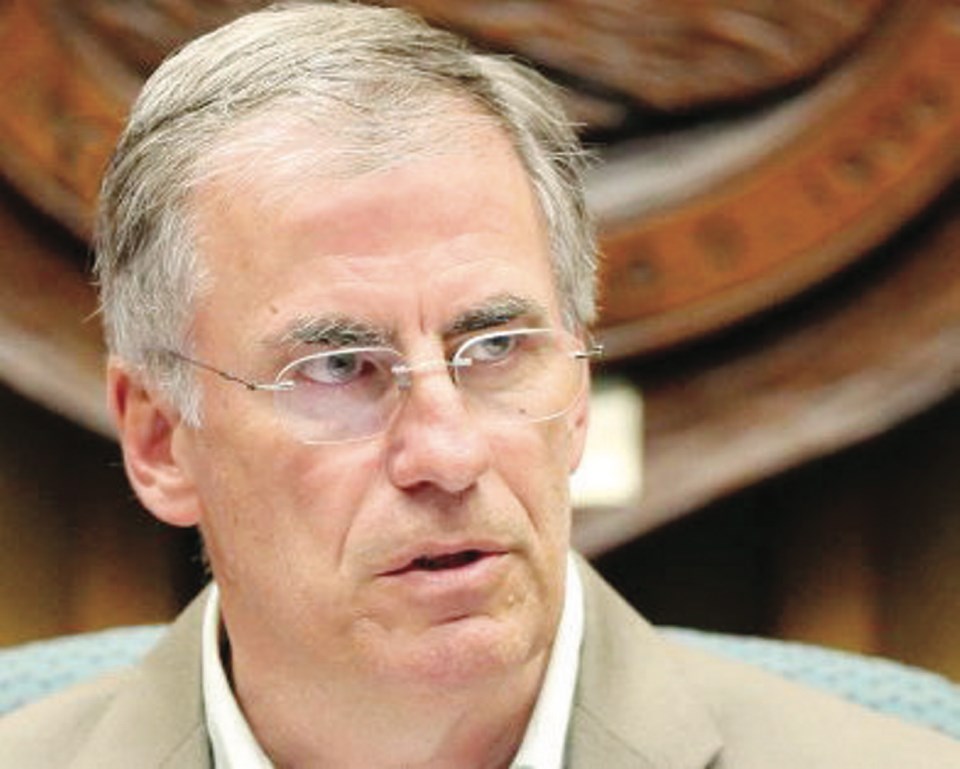Saanich Mayor Frank Leonard says he’s shocked that the province has ignored a call by B.C. municipal leaders to work on a new fiscal partnership that might give property owners some tax relief while allowing cities to fix roads, pipes and bridges.
“I’m just absolutely astounded that the provincial government just ignored us for 12 months, when all it would have taken was a meeting room and a jug of coffee to start the conversation,” Leonard said.
Leonard said no one expected “instant action” on the report, but they also didn’t expect that several requests to meet with Community, Sport and Cultural Development Minister Coralee Oakes would be totally ignored.
Oakes’s staff said the minister did not have time for an interview on Wednesday. A spokesperson did not respond to questions about whether the leaders were ignored.
UBCM delegates passed an emergency resolution Wednesday “urging the province to commit to meaningful engagement under the Strong Fiscal Futures framework.”
Leonard was one of the report’s six co-authors, all but one of whom came from urban centres.
They argued that property taxes are just about tapped out as a source of revenue for local governments faced with ever-increasing costs of maintaining, repairing and replacing aging infrastructure.
“Without change, the increases needed to property taxes over this period will simply be unaffordable for many British Columbians, particularly lower-income earners,” the report said.
There is only one taxpayer to fund public services at all levels of government, the ministry emphasized.
“The first step is managing the taxpayer dollars we already have before any level of government should go looking for more.”
In an email, a spokesperson for Oakes cited health, education and transportation, but did not address infrastructure such as aging roads, pipes and bridges.
There are “creative ways for municipalities to share services and reduce the level of burden on taxpayers” and the province would like to work with local governments on that, the email said.
The report advocates revenue-sharing with the province through creation of an Infrastructure Development and Community Building Bank designed to ensure that local governments share in the wealth if the economy performs above a set benchmark.
It also recommended ensuring the province gets no more than 35 per cent of property taxes and that local governments get to keep 100 per cent of property tax attributable to new development and construction.
The province noted it has already acted on several recommendations in the Strong Fiscal Futures report, but some favoured small communities rather than large cities.
It has renewed the federal Gas Tax Agreement that will deliver $2.76 billion to local governments over the next decade, it said.
And it has stepped up applications under the Small Communities Fund of the larger New Building Canada Fund with the federal government to deliver $327 million to communities under 100,000 residents over the next decade.
It also cited its commitment to Small Community Grants, which will deliver $74 million in unconditional grants this year.



